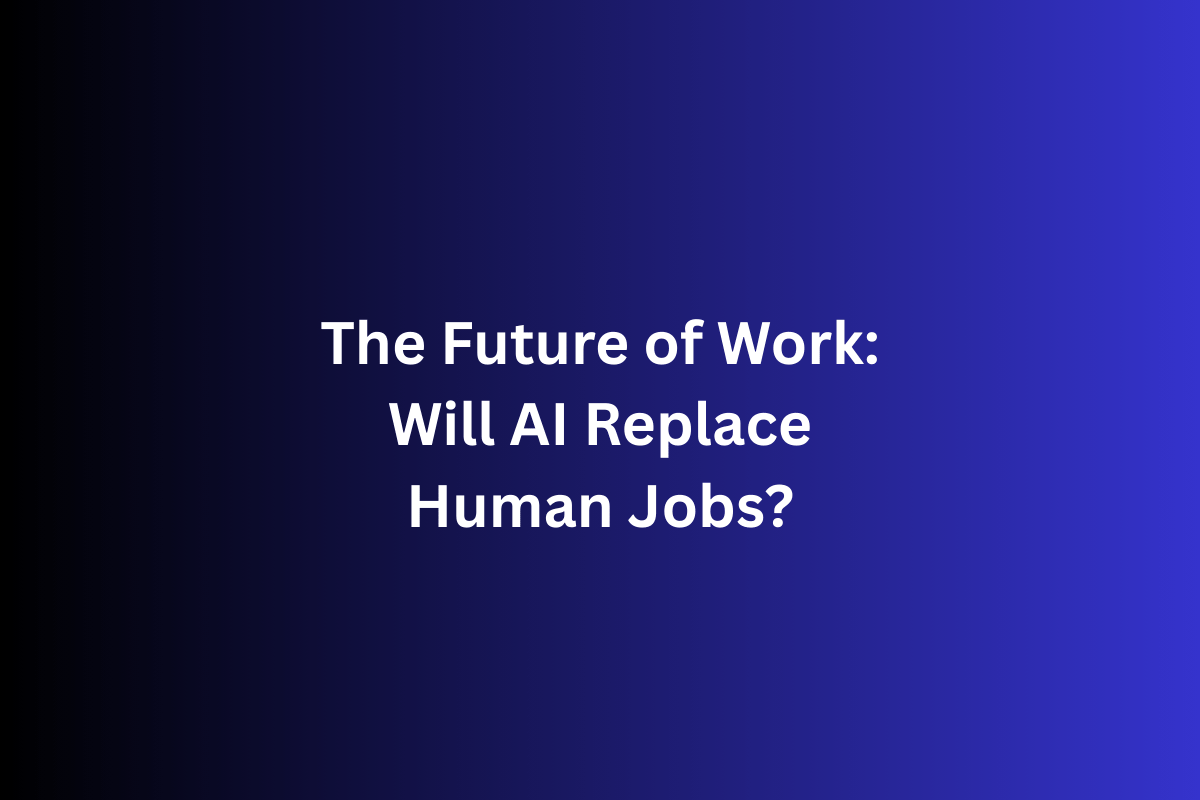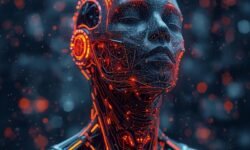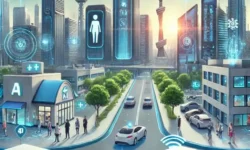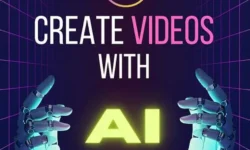Introduction – AI and the Shifting Job Landscape
Artificial Intelligence (AI) is transforming nearly every aspect of our lives, but one question dominates the conversation: Will AI replace human jobs? As we enter an era where machines can think, learn, and perform complex tasks, the future of work is uncertain.
Some people fear a future where robots take over entire industries, leaving millions unemployed. Others see AI as a powerful tool that will create new opportunities, boost productivity, and free humans from repetitive tasks. The truth lies somewhere in between.
The workplace is evolving faster than at any point in history. Unlike the industrial revolution, where machines replaced physical labor, AI is targeting both manual and cognitive jobs—roles once thought safe. From chatbots handling customer service to algorithms analyzing financial markets, AI is already reshaping how work gets done.
But here’s the key: AI doesn’t necessarily mean “replacement.” More often, it means “reinvention.” To understand the future of work, we need to explore which jobs are most at risk, which new jobs AI will create, and how humans can adapt to thrive in this new landscape.
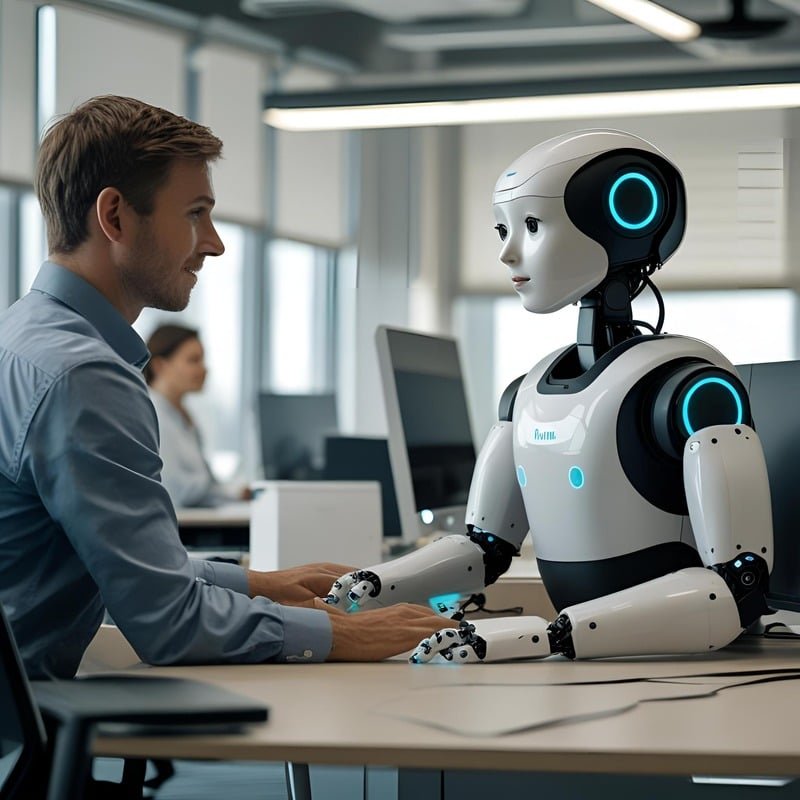
Understanding AI’s Role in the Workforce
To understand whether AI will replace human jobs, we first need to break down what AI actually does in the workplace.
What AI Can Do Better Than Humans
AI excels at tasks that involve:
- Repetition and routine – Machines don’t get tired or bored.
- Data processing – AI can analyze massive datasets faster than any human.
- Pattern recognition – From fraud detection in banking to diagnosing diseases in healthcare, AI sees patterns humans often miss.
- Speed and precision – AI systems can perform calculations and generate results instantly.
For example, AI can scan thousands of resumes in seconds, detect cancer in X-rays with higher accuracy, and manage logistics routes for global shipping companies.
What Humans Still Do Better Than AI
Despite its power, AI has limitations. It struggles with:
- Creativity – True innovation comes from human imagination.
- Emotional intelligence – Machines can simulate empathy but cannot truly feel it.
- Complex problem-solving – Many real-world challenges require human intuition and adaptability.
- Ethics and morality – AI doesn’t understand right from wrong—it only follows programmed rules.
This means AI is not a total replacement. Instead, it’s a complement to human strengths. The most successful workplaces of the future will combine AI efficiency with human creativity and empathy.
Industries Most Affected by AI Automation
Some industries are being reshaped more rapidly than others. By 2025, AI has already changed how businesses operate across sectors, and by 2035, we’ll see even greater transformations.
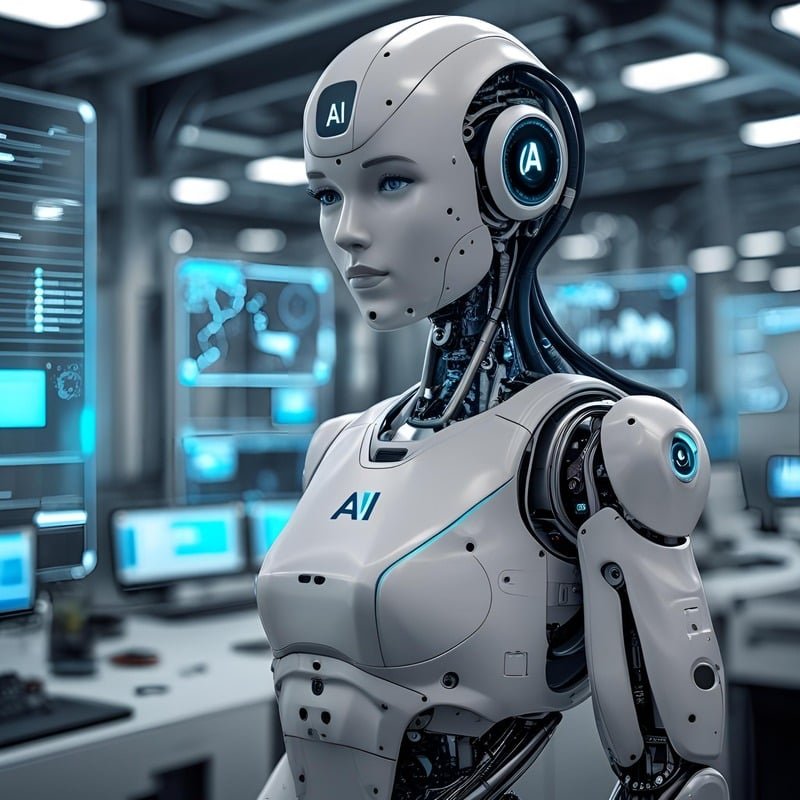
Manufacturing and Logistics
Factories have long used automation, but AI takes it further with predictive maintenance, quality control, and robotics that can self-learn. Logistics companies use AI to optimize delivery routes, reducing costs and delivery times. Jobs in repetitive manufacturing tasks are most at risk.
Retail and Customer Service
Chatbots powered by AI now handle millions of customer interactions daily. Self-checkout systems, automated warehouses, and personalized online shopping are replacing cashiers and some retail staff. While this reduces costs for businesses, it shifts human workers into customer experience or managerial roles.
Finance and Banking
AI algorithms already dominate stock trading, fraud detection, and customer support in banking. Routine roles such as loan officers or financial analysts face disruption. However, new opportunities emerge in AI auditing, compliance, and ethical financial management.
Healthcare and Education
AI assists doctors with diagnoses and helps teachers personalize learning for students. While AI may handle certain technical tasks, it cannot replace the empathy of a nurse or the mentorship of a teacher. Instead, AI supports professionals by reducing their workload, allowing them to focus on human interaction.
Industries with repetitive or data-heavy work will see the most change, but that doesn’t mean humans will be left behind. Instead, their roles will evolve.
Jobs at Risk of Being Replaced by AI
Not all jobs are equally at risk. AI tends to replace roles that involve predictable and repetitive tasks, both physical and cognitive.
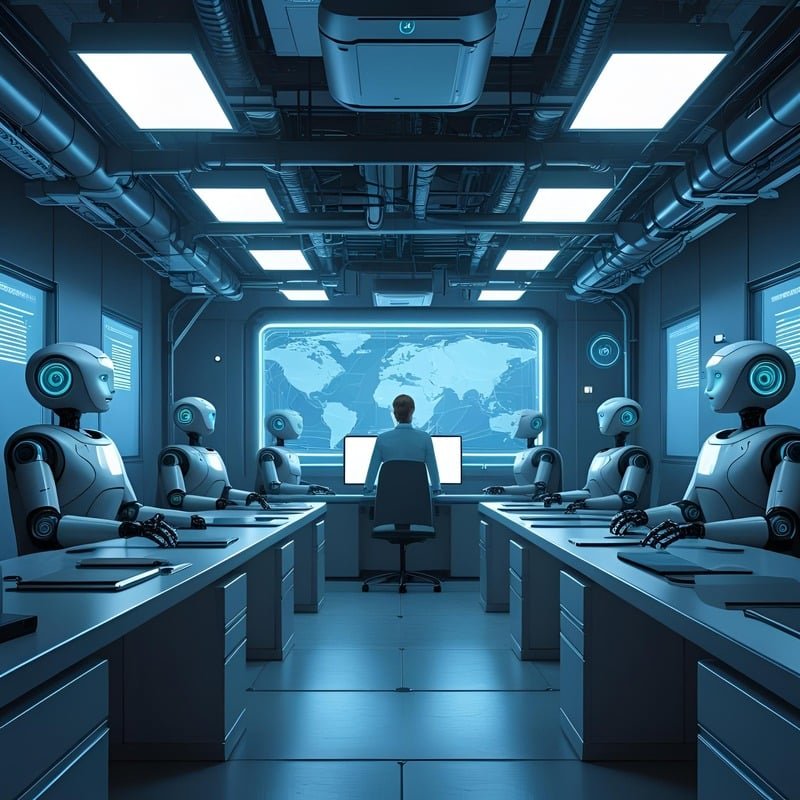
Routine and Repetitive Roles
Jobs like factory line workers, data entry clerks, telemarketers, and basic customer service agents are highly vulnerable. AI and robotics can perform these tasks faster and more reliably at lower costs.
Data-Driven Decision-Making Jobs
Some white-collar jobs are also at risk. For example, AI can already prepare financial reports, analyze legal documents, and even generate marketing campaigns. This threatens positions in finance, law, and advertising that rely heavily on data.
Examples of Real-World Replacements
- Call centers are increasingly staffed by AI chatbots.
- Retail stores are adopting cashier-less checkout systems.
- Transportation may soon see driverless trucks replacing long-haul truckers.
However, even in these industries, AI often reduces rather than eliminates human jobs, shifting workers into more strategic or customer-facing roles.
Jobs That AI Will Create Instead of Replace
The fear of AI job loss often overshadows the opportunities AI creates. Historically, every technological revolution has destroyed some jobs but created new ones—and AI is no different.
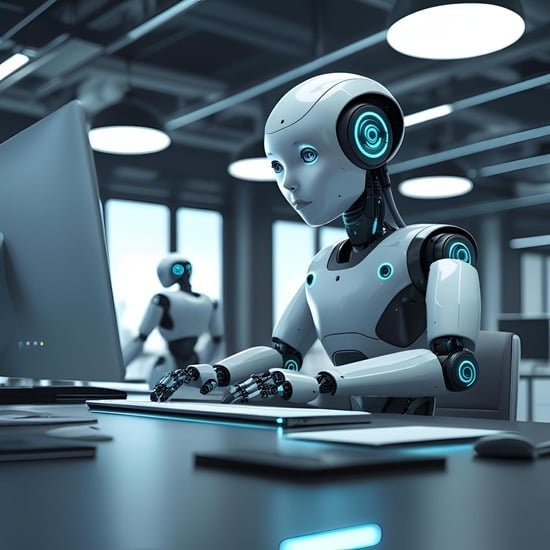
AI Development and Maintenance Roles
Someone has to build, train, and maintain AI systems. This creates demand for AI engineers, machine learning specialists, and software developers.
Data Science and Analytics
As AI generates massive amounts of data, there’s growing need for data analysts and AI ethicists who interpret results and ensure fair usage.
Human-AI Collaboration Roles
New hybrid roles are emerging where humans work alongside AI. For example, doctors rely on AI for scans but make final diagnoses. Teachers use AI to customize lessons but remain the mentors. Writers use AI to draft ideas but refine them with human creativity.
In short, AI won’t just replace jobs—it will redefine them. Those who adapt will find themselves in entirely new careers that didn’t exist a decade ago.
The Skills Needed for the AI-Powered Future
If there’s one truth about the future of work, it’s this: adaptability is survival. As AI reshapes industries, workers must focus on building skills that AI cannot easily replace.
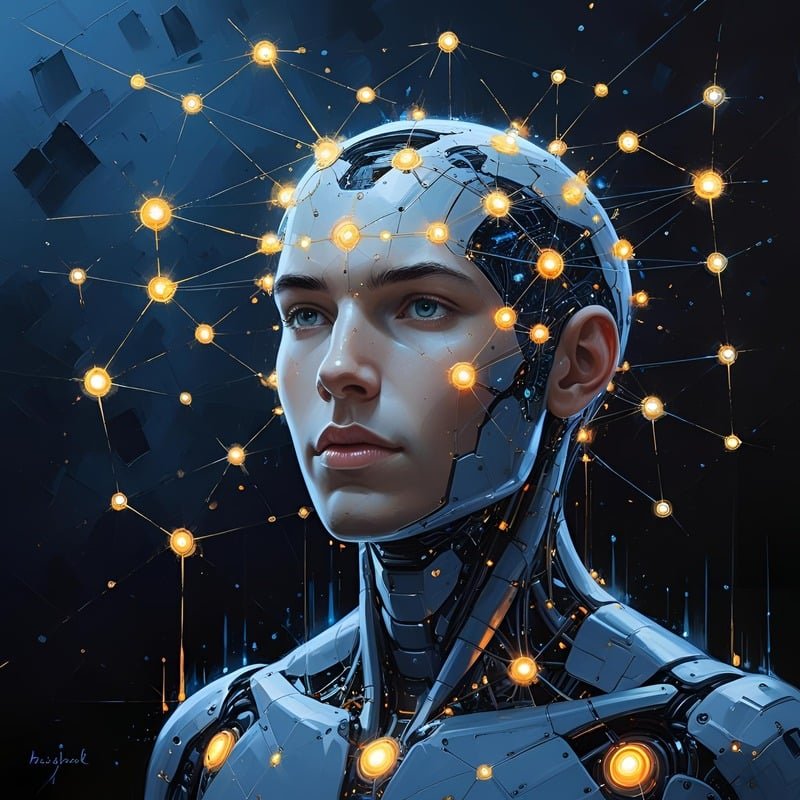
Technical Skills (Coding, AI Tools, Data)
Learning how to work with AI is becoming as essential as knowing how to use a computer in the 1990s. Coding, data analysis, and AI system management are among the most valuable skills for the future. Even if you’re not a programmer, familiarity with AI tools (like automation software, data dashboards, and machine learning platforms) will give you an advantage in almost any career.
For instance, a marketing manager who knows how to use AI-powered analytics can make faster, smarter decisions than one relying only on intuition. A logistics manager who understands predictive AI can reduce costs and improve efficiency.
Soft Skills (Creativity, Emotional Intelligence)
Ironically, the rise of machines makes human qualities more important than ever. Skills like empathy, leadership, communication, and creativity are hard to automate. A robot may answer customer questions, but it cannot build long-term trust or understand human emotion the way a skilled employee can.
Lifelong Learning and Adaptability
The most important skill of all is the willingness to keep learning. The World Economic Forum predicts that half of all employees will need reskilling by 2030. That means workers must embrace continuous education, whether through online courses, company training programs, or self-study.
Those who adapt will thrive in AI-powered industries, while those who resist may find themselves left behind.
Human Strengths AI Cannot Replace
Despite its power, AI has clear limits. To truly understand the future of work, we must recognize the unique qualities that only humans bring to the table.

Empathy and Emotional Connection
Think about nurses, therapists, and teachers. These roles require genuine care, compassion, and emotional intelligence. While AI chatbots can simulate conversation, they cannot truly feel empathy. Human connection remains irreplaceable in professions where relationships matter most.
Creativity and Original Thought
AI can generate content, art, and even music—but it’s based on patterns and data from the past. It doesn’t have imagination, intuition, or the ability to invent something completely new. Humans remain the driving force behind breakthroughs in art, science, and culture.
Ethical and Moral Judgment
AI follows rules. It cannot weigh moral dilemmas or navigate complex ethical decisions. For example, in healthcare, AI might suggest the most effective treatment, but only a human doctor can balance that with compassion, patient preference, and moral responsibility.
In short, AI may be brilliant at efficiency, but the heart and soul of work remain human.
How Businesses Are Preparing for the AI Future
Forward-thinking businesses aren’t just adopting AI; they’re redesigning their entire work models to maximize the partnership between humans and machines.
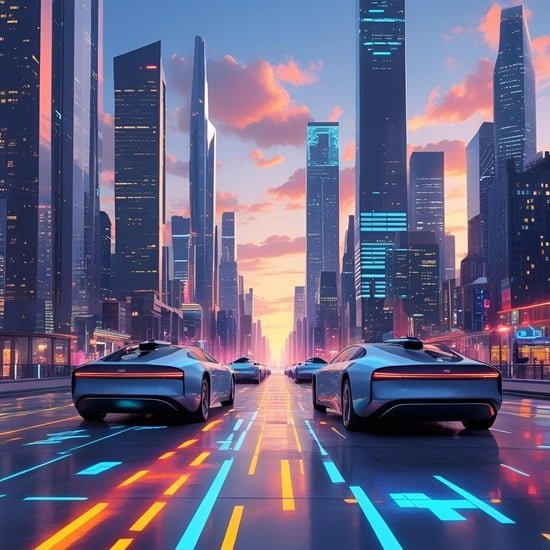
Reskilling and Upskilling Employees
Rather than replacing workers, many companies are investing in training programs to help employees learn AI-related skills. Amazon, for example, has launched large-scale reskilling initiatives to prepare its workforce for AI-powered logistics and retail systems.
Human-AI Collaborative Work Models
Businesses are finding that the best results come when AI handles repetitive tasks, while humans focus on creativity and strategy. In marketing, AI generates ad variations, but humans decide which messaging resonates emotionally. In healthcare, AI analyzes scans, but doctors provide patient care.
Case Studies of Successful Adaptation
- PwC (PricewaterhouseCoopers) uses AI to automate audits but trains employees to interpret results and advise clients.
- Coca-Cola leverages AI for consumer insights, but human marketers design creative campaigns.
- Tesla uses AI-driven robots in factories but still relies heavily on human oversight and innovation.
The companies thriving in this new era are those embracing AI as a partner, not a replacement.
Government and Policy Responses to AI in Work
The rise of AI isn’t just a business issue—it’s a global policy challenge. Governments must balance technological progress with protecting workers.
Universal Basic Income (UBI) Debates
Some economists argue that if AI replaces a large number of jobs, societies may need to provide universal basic income (UBI)—a guaranteed payment to all citizens. This idea is controversial but is being tested in countries like Finland and discussed in the U.S. and Europe.
Education System Reforms
Governments are also rethinking education. Traditional schooling focused on memorization is becoming outdated. Instead, curriculums are shifting toward critical thinking, problem-solving, and digital literacy—skills that machines can’t easily replace.
AI Regulation and Worker Protection
There’s growing debate about AI regulation. Should companies disclose when AI makes hiring decisions? Should workers have the right to appeal when AI is used in performance evaluations? Policymakers are starting to draft rules that ensure AI adoption doesn’t harm human rights or job security.
The Global Impact of AI on Jobs
The effects of AI won’t be felt equally across the world.
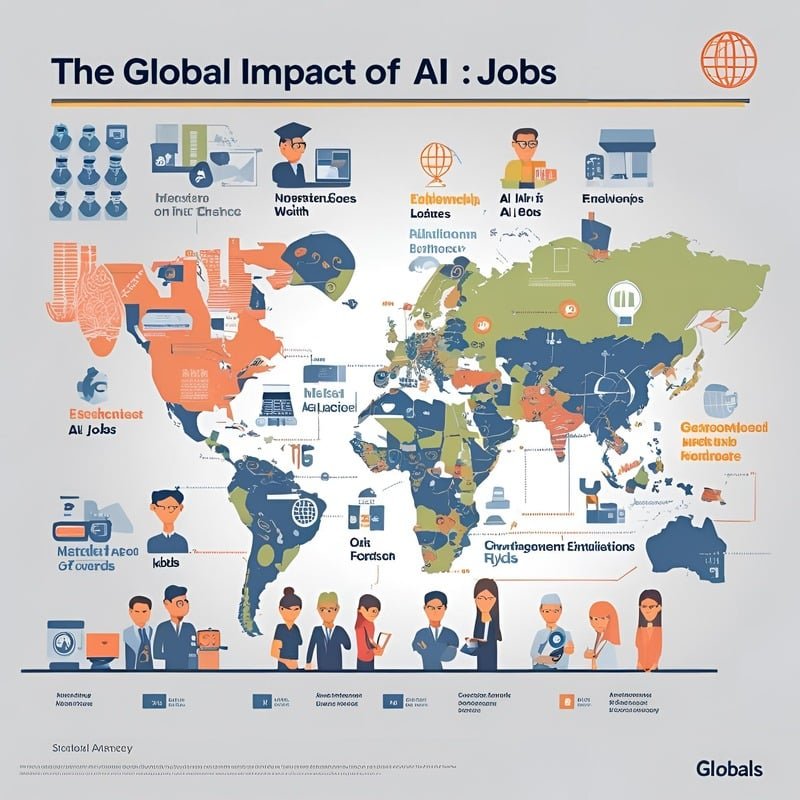
Developed vs. Developing Nations
In developed countries, AI adoption could lead to higher productivity and more specialized jobs. In developing nations, however, where many economies rely on low-cost labor, automation may threaten industries like textiles and manufacturing.
Inequality Concerns in the AI Era
AI could widen the gap between those who can afford education and access to technology, and those who cannot. Wealthier countries and individuals may thrive, while poorer populations risk being left behind.
Global Competition for AI Talent
Nations are racing to become AI leaders. The U.S., China, and the European Union are investing billions in AI research. Meanwhile, smaller countries are trying to attract talent through AI-friendly policies and innovation hubs.
The global balance of power may shift depending on who leads the AI revolution.
Future Predictions – What Work Will Look Like by 2035
As we look toward 2035, it’s clear that AI will not simply erase jobs—it will reshape them. The workplace of the future will look drastically different from today’s offices, factories, and schools.
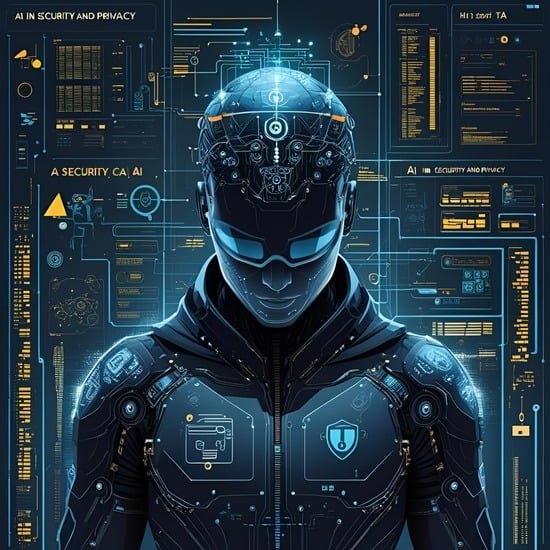
Human-AI Hybrid Work Environments
The most likely future is one where humans and AI work side by side. Imagine a doctor diagnosing patients with the help of an AI system that analyzes test results in seconds, or a lawyer preparing a case with AI research assistants. In these hybrid environments, AI handles the heavy data work, while humans provide judgment, strategy, and empathy.
Some experts predict that 80% of jobs will integrate AI in some form by 2035. That doesn’t mean 80% of jobs will disappear—it means workers will use AI as a tool, just as they now use computers or the internet.
Remote and AI-Driven Workplaces
The COVID-19 pandemic accelerated remote work, but AI will push it even further. Virtual assistants, automated scheduling, and advanced collaboration platforms will make remote teams as efficient as in-person ones. AI could even power virtual reality offices, where employees across the globe meet in shared digital workspaces.
This shift will make work more flexible, but it will also demand strong self-management and digital communication skills from workers.
The Possibility of a Four-Day Work Week
Here’s one of the most exciting predictions: AI could lead to shorter work weeks. If AI increases productivity, businesses may find that employees can achieve the same output in fewer hours. Several companies are already experimenting with four-day work weeks, reporting higher employee satisfaction and equal (or better) performance.
By 2035, this could become the norm in AI-driven economies. Instead of fearing job loss, workers may actually enjoy more free time, thanks to the efficiency AI brings.
Conclusion – Will AI Replace Human Jobs or Redefine Them?
So, will AI replace human jobs? The answer is both yes and no. Yes, some jobs—especially repetitive and routine ones—will be automated. But no, AI will not replace humanity in the workforce. Instead, it will redefine work.
Throughout history, every major technological revolution—from steam engines to computers—has caused fear of job loss. But in the long run, each revolution created more opportunities than it destroyed. AI is following the same path.
The future of work will not be humans versus AI—it will be humans with AI. Success will depend on our ability to adapt, reskill, and embrace AI as a partner rather than an enemy.
If we prepare wisely—with strong education systems, supportive government policies, and business strategies that value people as much as machines—then AI won’t destroy jobs. Instead, it will create a future where work is smarter, more efficient, and more human than ever before.
FAQs About AI and the Future of Work
Which jobs are most at risk from AI?
Jobs involving repetitive tasks—like data entry, telemarketing, and basic customer service—are most at risk. AI thrives in predictable environments.
Will AI create new jobs?
Yes. AI will create new roles in data science, AI engineering, robotics, and human-AI collaboration. Many jobs of the future don’t exist yet.
Can AI replace creative professionals?
Not fully. While AI can generate art, writing, and music, true creativity and originality remain uniquely human.
How should workers prepare for an AI-driven future?
Focus on lifelong learning, develop technical skills (like coding and data analysis), and strengthen soft skills (like creativity and empathy).
Will AI lead to shorter work weeks?
Possibly. If AI boosts productivity enough, companies may adopt four-day work weeks, giving workers more free time while maintaining efficiency.
External DoFollow Links:
Internal Links (suggested):

